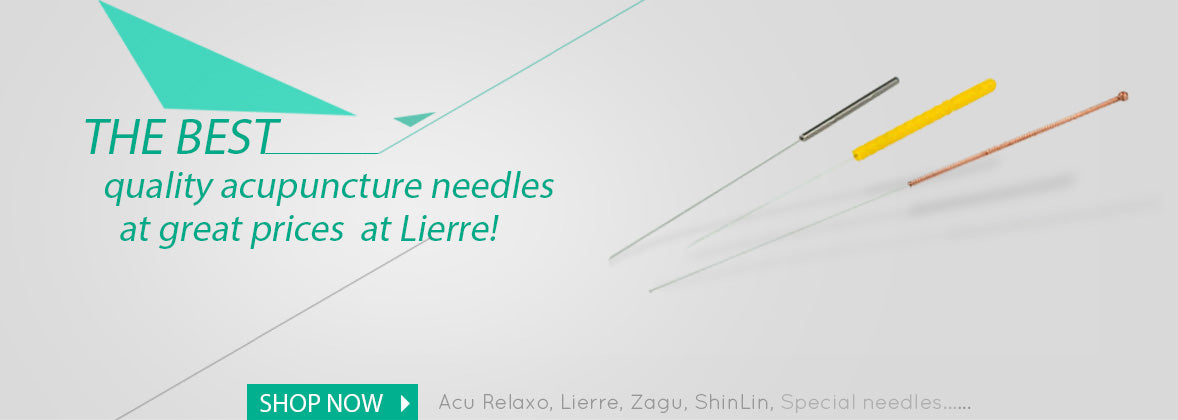Acupuncture Needles: Norms and Standards
Acupuncture is a Traditional Chinese Medicine (TCM) that has been practiced for thousands of years. Nowadays, as it becomes a popular alternative therapy, more people start to get interests in acupuncture, but the suspicious follow as well. Some people are thinking: Are acupuncture needles safe to use?
Are acupuncture needles safe to use?
In fact, standardized acupuncture needs are safe to use. While acupuncture detractors often like to point out that acupuncture does involve some risks, the truth is that the profession and materials are highly regulated in Europe and North America. For example, the vast majority of acupuncture needles are one-time-use, avoiding the problems of improper sterilization and cross-contamination. Medical equipment, moreover, is subject to a variety of norms and standards across Canada, all of which must be met in order for acupuncture needles to make it to the market, and to continue being sold.
What are the norms and standards for acupuncture needles?
These norms and standards require regular reports to be made to approve the products’ continued sale. It can be difficult to parse out the different rules applying to these standards, however, since they tend to be written in cryptic legal language, and they tend to be so long that it’s easy to get lost while reading them. It is very important for medical devices such as acupuncture needles and TDP Lamps to follow all the guidelines in order to meet the safety requirements. Apart from that, only professionals are allowed to have access to certain kinds of medical devices such as acupuncture needles.
International Standards and Guidelines
These norms were formulated as guidelines that would facilitate consistent international regulation regarding medical devices. Countries and regions are free to adopt these standards, or to modify them in any way they see fit. For a more in-depth explanation regarding international medical device standards, this article makes a great starting point.
Canada, the United States and the European Union all adopt international legislation to different degrees, and sometimes substitute their own; however, despite this lack of concordance, the policies tend to be consistent enough that an acupuncture needle approved for Canadian customers can more often than not be approved in the US and in the EU, once requirements such as proper paperwork and inspections are fulfilled.
These standards include risk management measures, their effect on the body, and quality control, which usually involves sterilization. For example, some acupuncture needles are coated by silicone. This kind of silicone is different from silicone used in constructions or decorations. Therefore, silicone coated acupuncture needles such as brand Acu-Relaxo and Lierre Plus are safe for insertion into human body.
Even for non-coated acupuncture needles, the stainless steel has its standards. Therefore, not all stainless steel can be used for non-coated acupuncture needles. Normally, stainless steel imported from German has high standards along with great quality are used by lots of acupuncture needles manufacturer such as Zagu.
Food and Drug Administration (FDA)
Perhaps the most famous state organization regulating the sale of products, the FDA is arguably better known in Canada than its national equivalent. In spite of its name, the Food and Drug Administration also controls the sale of medical devices and the approval of medical procedures. FDA regulations stipulate that acupuncture needles should be one use only, properly and consistently sterilized, and that their materials should be appropriate for use in contact with the body.
Canadian Medical Devices Conformity Assessment System (CMDCAS)
The Canadian Standards Authority oversees standards regarding medical devices, and it is a branch of Health Canada. The Canadian standards for medical devices closely resemble international standards, and include mandatory certification that products are manufactured in such a way as to meet the National Standard of Canada, and more specifically ISO13485.
Products must also be registered, and any reports of adverse effects linked to their use must be reported to the board. Expiration date of acupuncture needles is another important consideration apart from all the standards. If the needles passed the expiration date, even they are followed all the regulation guidelines. You would better avoid using it for your treatments.
In short, before you purchasing acupuncture needles, you should go through all the norms and standards that are mentioned above to check. Please use acupuncture needles properly. If you are interested, do not hesitate to visit Lierre.ca for more professional acupuncture needles!
Lierre only offers acupuncture needles with sufficient period for professional acupuncturists to use. All of Lierre’s acupuncture needles meet FDA and CMDCAS guidelines, including ISO13485. These norms are strict, and guarantee both the needles’ safety and consistency. Lierre’s brands, such as Acu-Relaxo, Shinlin, and Lierre Plus are all manufactured to meet even higher standards of quality than these norms require: our goal is not simply to provide adequate needles, but ones that truly excel.


